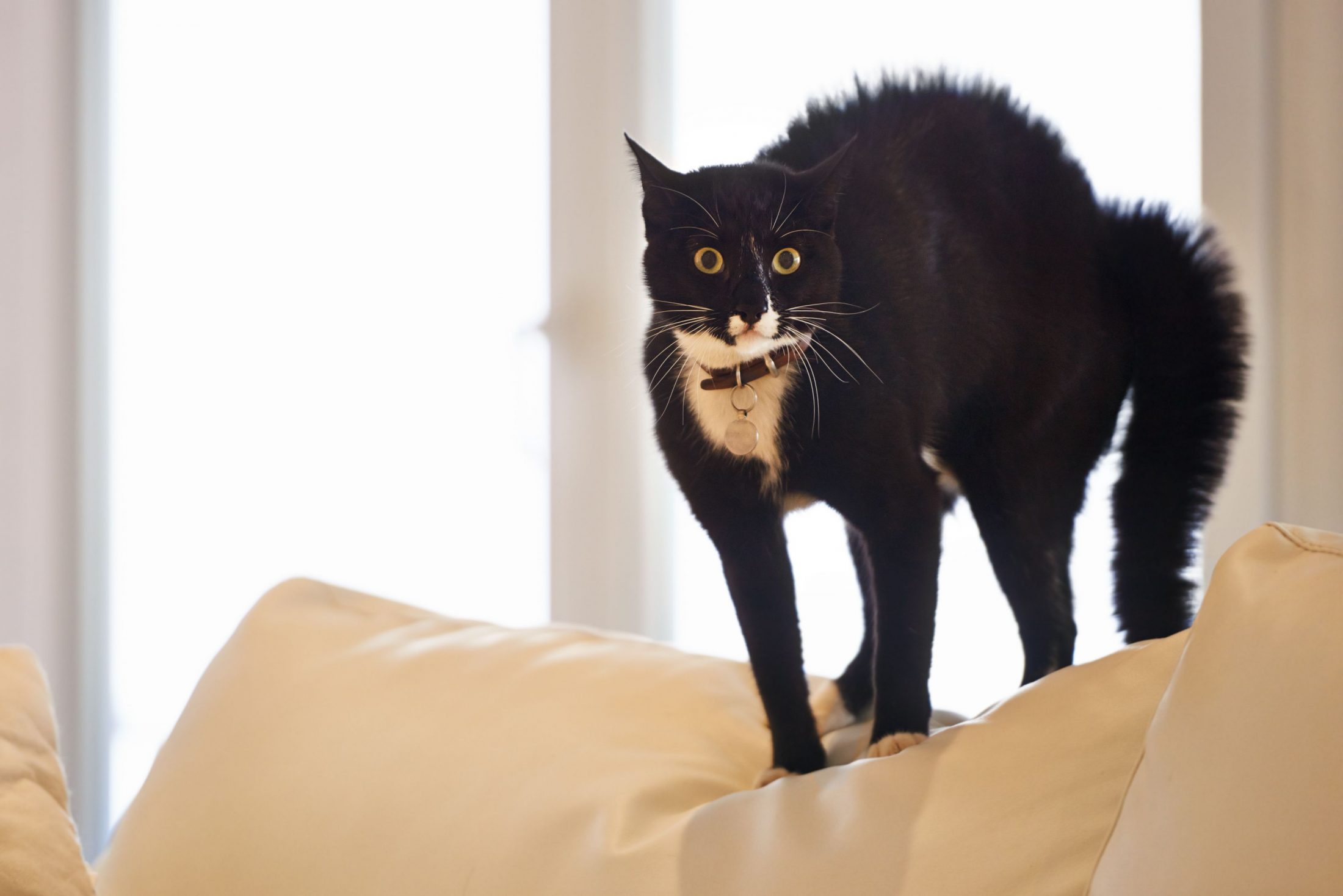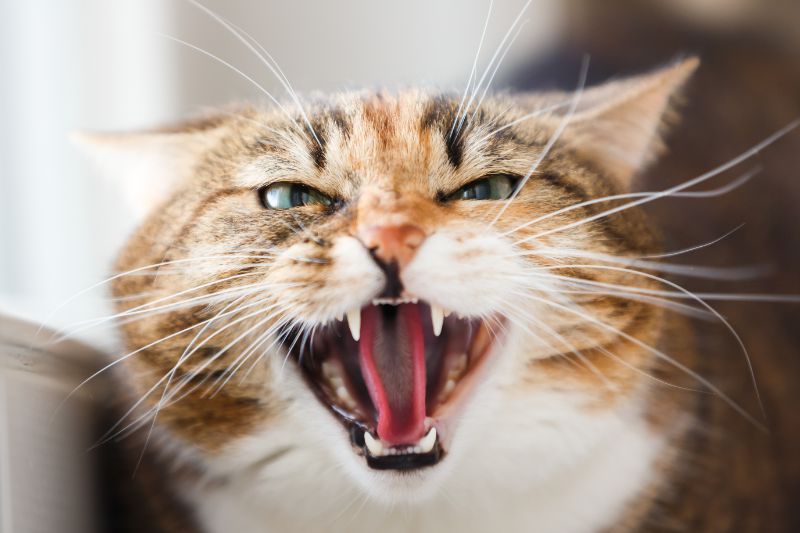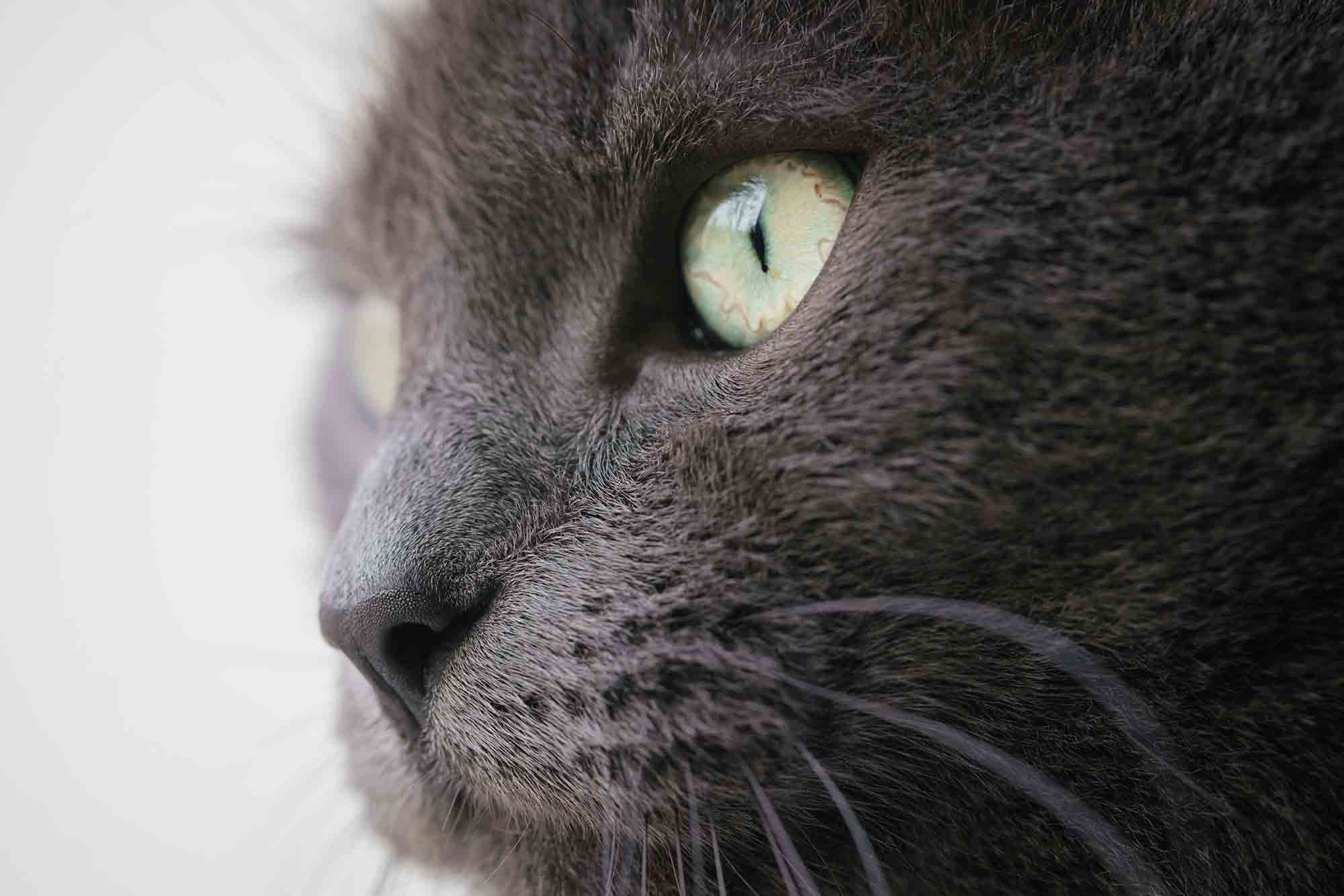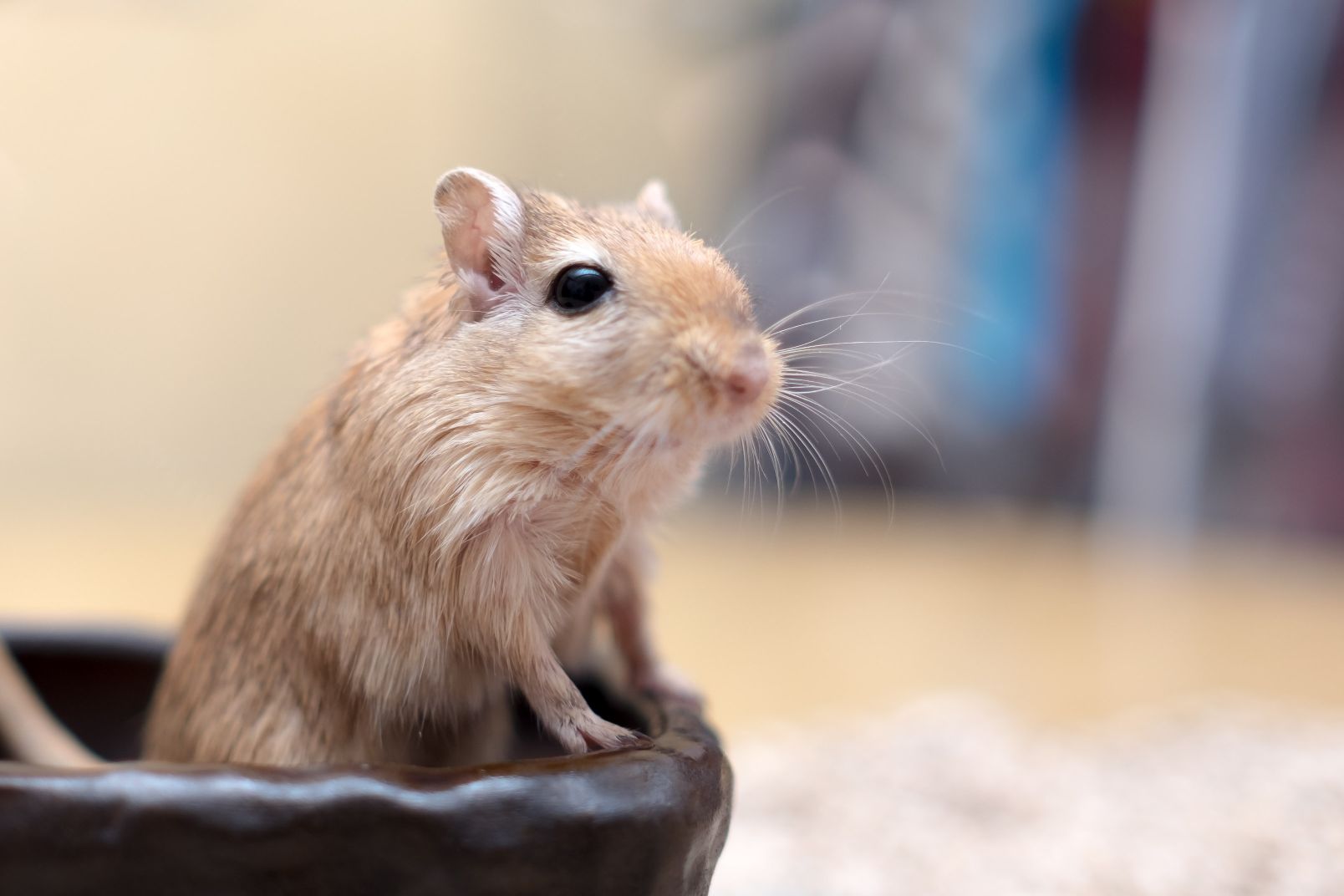Cats, like people, can be a little persnickety sometimes. They like certain things presented in a specific manner, at an anticipated time. Completely thrown off their game by surprises, cats try to save face by acting like they just couldn’t care any less. But they do!
As cat owners around the world know well, we owe it to our feline to treat them like the kings and queens that they are. This means we must work toward eliminating (or at least reducing) the things cats hate around the house.
1. C-H-A-N-G-E
Of all the things cats hate, they really detest change. They grow to rely on their stuff being in exact locations, under pristine conditions. Of course, every cat is different. But as a general rule, cats dislike uninvited guests into their hard-won territory, they don’t like when their dry kitty crunchies change, or you unilaterally decide to switch their food.
Some cats hate when their bedding is washed, and may not sleep in it afterwards just to spite you. They also dislike moving, when you stay out late, or when you go on vacation. In short, cats hate any and all possible disruptions to their routine. It’s necessary to honor their proclivities, and give them whatever they need (when they want it!).
2. A Dirty Box
Seriously, cats hate when their litter box is full of waste. They know it’s their waste, but still, it’s highly insulting if they go to use their box and yesterday’s waste is still there. To prevent issues related to the litter box, be sure to scoop it throughout the day, ideally right after they use it (this obviously helps with smell, too).
The proper amount is one litter box per cat, plus one extra. One cat should have two boxes. If you live in a multi-level home, have one on each floor. As your cat ages, ensure that they can easily get in and out of their litter box.
This might go without saying because of the first item on this list, but cats hate when their litter is changed abruptly. Sure, you might have to make a switch for various reasons. It’s important to slowly phase out their previous litter with the new stuff.
3. Loud Noises!
Have you ever noticed your cat scamper off whenever you bring out the vacuum cleaner or blender? Do they run away at the mere sight of the lawn mower?
Cats have amazing hearing. They hear higher frequencies than we can, and detect sounds at greater distances 4-5 times better than humans. The ears trigger the brain to react with alarm. Their heart rate and blood pressure climb, and they start to breathe faster. By default, their actions are to run away and hide to wait out the perceived threat.
Knowing this, cat owners must be sensitive. Warn your cat that you’re about to make some noise, and give them a chance to go to another room to wait it out.
What Else Do Cats Hate?
Not all cats hate these 3 things, and some felines detest many more components of modern life. With that said, it’s crucial to get to know your cat well in order to best please and provide for them.
If you have questions about feline behavior, body language, health and wellness, our veterinary team is always here to assist you.



 Snow leopards spend the majority of their lives alone, but they spray the rugged landscape along the way to send signals to other cats. Not only helpful in locating individuals (like relatives or potential mates during breeding season), their urine helps mark their own distinct territories.
Snow leopards spend the majority of their lives alone, but they spray the rugged landscape along the way to send signals to other cats. Not only helpful in locating individuals (like relatives or potential mates during breeding season), their urine helps mark their own distinct territories.

